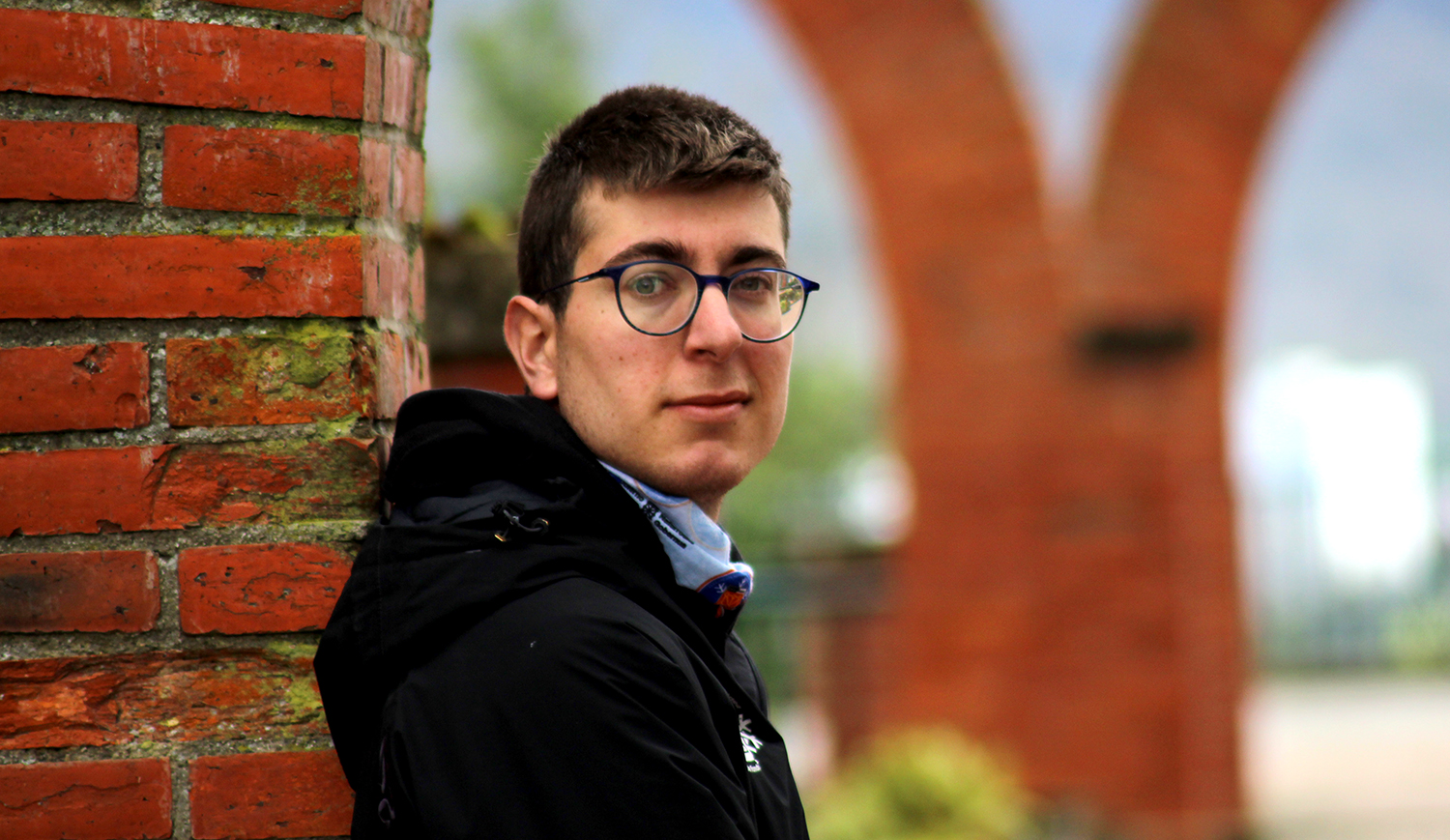Puntista that breaks schemes
- “Don’t dream, live your dreams!” says the mural next to the fronton of Markina-Xemein. The Izaro Arbe headboard has participated in the mural and has the motto well interiorized: Left, Zaguera and a single woman in the world of men for many years, has had to win her place on the fronts.
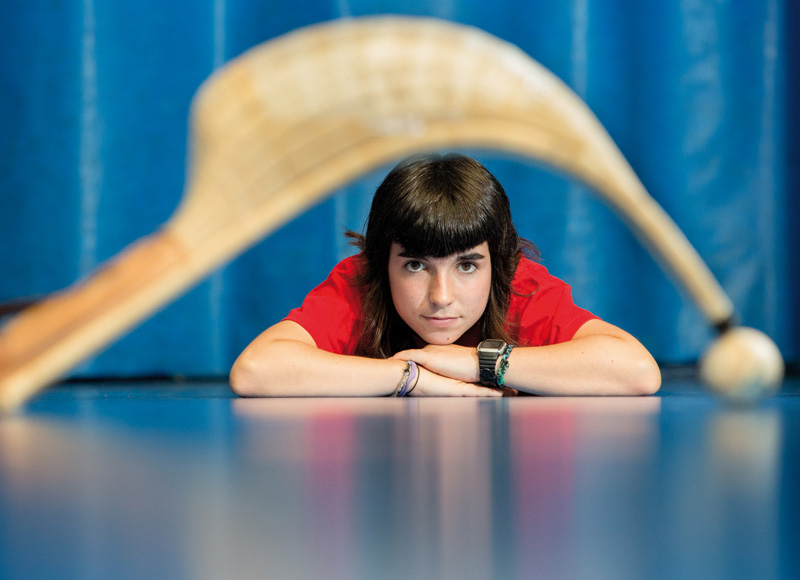
Today is Arbe's training day. Wet the chistera with water, as the strip needs moisture so it does not break. She tells us she keeps her in the bathroom of her house. “We have to take care of it with mime.” The chistera is an artisanal work of about 25 hours and today there are hardly any cesteros, in total there are about five in the Basque Country, who need the relief of the young generations who are going to study the trade. “They are now testing carbon baskets, analyzing new materials…” He's put his helmet on and he's thrown into the pediment, where two boys and a coach are waiting for him, among others. The size of Arbe is small, but it grows on the playing field and gives a few caste blows to the ball. The show is impressive from the grade, they say it is the fastest game in the world, for the speed that the ball takes. Markina's, 22, was also seduced by the spike basket from her childhood. “The way to catch the ball with the kid, the noise he does, the charm of the hand-made basket, the local sport… The spike basket is special compared to other sports.”
He was first dressed in the joke when he was 11 years old, excited to see his older brother Jokin Arbe play. With the help of her parents she enrolled in the Markina-Xemein club and was welcomed. However, being the only girl, she has had many obstacles along the way. “The pediment is a fully masculinized space and the impression I received at the beginning of the others was “what is it doing here?” There are people of all kinds and I have had to listen to everything.” After 14 years, when he began to notice the difference in forces with the boys, after playing a championship, the organizer told him: “You shouldn’t work with boys anymore, you should work with girls.” Arbe remembers with pain: "If there was no other girl! Was he trying to get rid of me? But at that age, you don't have enough tools to deal with them. You’re alone, making the double effort to do the same as others, and instead of valuing, you have to listen to things like that.” He has also been touched by listening by the mouth of his rivals “Should I play against a girl?” because some feel uncomfortable, by playing against a girl or by losing. “But in general, at least in my environment, I have been very well with the players,” he wanted to stress.
Although he sometimes sits alone, the support of the premises has been fundamental. “I have always had my brother by my side, always ready to teach him, especially in the face of the ugly faces and commentaries of the beginning.” Currently, Jokin Arbe has been working as a professional in the United States since last January.
In addition, the left
Force is an important factor in the spike basket and from a moment the markinarra started to face younger boys to play matches. Besides being the oldest, he had to stop participating in the official competitions, as he was outside the age required by the category and the Federation did nothing to find a solution. Training and training with the little ones, without the encouragement of the parties, “was very motivating,” he says. For a while another girl was with her, but, in view of the situation, she ended up leaving her. Arbe, however, is not one of those who give in, especially considering what it cost at first: it is left-handed, and it is compulsory to play with the right, you cannot take the basket with your left hand; it was a year hitting and burning, until you learned to play with your right hand. There have been people who have played the left, but, although there is nothing to say in the rules, it is not accepted. We asked him if he hadn't tried to play left. “Girl and up with the left! But what do you want me to be thrown directly from the fronts?” she says laughing.
“He told me I shouldn’t be with the kids, but at age 14 you don’t have enough tools to cope. You are alone, making the double effort of others, and instead of valuing you have to listen.”
In a motivation boot, in addition to the spike basket, he started to touch the shovel. After all, thanks to projects such as Emakume Pilotari, the modality that most women gather in the fronts is the blade. Infrastructures, championships and facilities, because they yield results. “It is significant that at present more than 80% of the women engaged in the shovel come from other modalities. Many of the elite scholars have been pre-selected.” Arbe realized, however, that “what really filled me was a tipping basket, and if I wanted to make the way, I had to do it myself, that nobody would do it for me.” He left the shovel, he wagered on the basket and decided to continue until he turned the situation around, opening the way to the new generations.
Back strong from demotivation
“Little by little, I’ve been winning my field. It has cost, but I have achieved it, and in Markina-Xemein I am one more on the fronton. If I had to make an assessment of my trajectory, I would say that I am the person who has not given up what I want.” And that's not a little bit. After studying Teaching in Vitoria-Gasteiz, Arbe returned to the town with great desire: currently, train twice a week, play a friendly match every Friday with older children (11, 15, 18...), and within the framework of the Xistera project, women's championships are being organized, which have already done three. In fact, they are French and Catalan players, with whom they have made meetings. At the end of October, the intention is to meet all of us in the Basque Country. In Catalonia, players have fallen from a dozen women to half, but in France the number has risen, and they are now approaching 15. Since last year, in the adult category, another woman has been working in Donostia: Leire Arribas. And most importantly, it's creating a quarry of girls who play, among others, thanks to the work of the coach of Izaro Arbe herself.
“Hardly, but I’ve won my field, in Markina-Xemein I’m one more in the pediment. If I had to make a valuation of my trajectory, I would say I'm the person who hasn't given up what I want."
The tip basket is a declining mode. The leading associations of Euskal Herria have joined together and created the Xistera project, with the aim of reinforcing this sport. The initiative has three main axes: promoting championships at the amateur level, encouraging the participation of women and publicizing the final basket to children and young people in schools. In this third branch is the markinarra, who says it is a great step: “This course will go to twelve villages, which means that a lot of students will know this sport. The goal is that the kids try it all, and that the reference is the woman is also very important: three years ago, I started to train the kids in the top basket in Durango and Berriatua; before they had a man as a coach, and to play zero, two weeks after I put myself, 14 girls signed up suddenly!”
Arbe himself has had few references, as no woman has played the soup. “I think many women would test it, but they didn’t thrive. Interestingly, the woman's access to the Basque ball was through the tip basket: Eibarresa María Unzueta practiced a spike basket at the end of the 19th century, was a good player and proposed to be a professional, but his father banned it.”
“Now the 8-year-old girl who wants to play pumpkin is not alone”
After teaching children in Durango and Berriatua, Arbe takes the title of Basque football coach and last year works at Markina-Xemein. She is at Bekobenta College, with young people between the ages of 6 and 12. About twenty of them, approximately 14 girls. “The idea is to go to the big pediment when they learn a little.” In total, about 100 people remain in the village performing cleaning tasks.
“Having female referrals is very important: I started training the kids, before they had a coach with a man, two weeks after I got 0 of 0 girls pointed 14”
After throwing the game and going home, Arbe doesn't want to drive such a program. Practice spikes, make games related to sport, create a team environment… Beyond physical activity, try to work values in the workouts. “In Primary Education everyone works together, so it has to be: girls and boys, regardless of their origin, with mixed ages… Sport is a good tool to work with coexistence, an excuse for people who have no relationships to move, and I struggled to try not to have boys say ‘I have not played with a girl’.
The Vizcain is at ease, it is evident that the effort is bearing fruit and sees a team of girls with hope: “Now, the 8-year-old girl who wants to play pushkin is not alone, has more girls in the group and with the group is easier to follow in the future.” Izaro Arbe is very happy for her quality as a coach and for her good performance as a player. How many prejudices have you broken? “I don’t know the prejudices, I’ve broken people’s schemes, that’s right. There will be everything: some will say, what is this doing to the cistern?, and others, “Aupa Izaro! What I didn’t do you have done.”


Read the article in English argia.eus/english.
Urriaren 1ean, Ondarroan ospatuko dugu aurtengo Argia Eguna, Puntadaz puntada, txikitik eragiten lelopean. Eskualdeko eragileek hartuko dute parte egitarauan, eta jolas hezitzaileak egingo ditugu goizean, tartean zesta-puntari lotutako jarduerak, Izaro Arbek gidatuta. Saskia lotu eta probatzeko aukera izango dute gerturatzen direnek; jolasak ere prest ditu puntistak, zapiaren jolasa adibidez, baina zapia beharrean xisterarekin pilota hartuz. “Jendeak zesta-punta ezagutu dezala, hori izango da helburua, eta erakustaldi gisa partidutxoa ere egin daiteke”.
Irungo Landetxa auzoko pala txapelketa mistoan, hogei bikotetik bakarra da emakumeek osatua, 40 lagunetik bi baino ez dira emakumeak: Idoia Karrera eta Loiola Zuazu. Lehiaz, txapelketa misto eta ez mistoen arteko aldeez eta joko-mailaz mintzatu gara haiekin. "Emakumeok... [+]
Lehengai anitzekin papera egitea dute urteroko erronka Tolosako Lanbide Heziketako Institutuko kimika industrialeko ikasleek: platano azalekin, orburuekin, lastoarekin, iratzearekin nahiz bakero zaharrekin egin dituzte probak azken urteotan. Aurtengoan, pilota eskoletan kiloka... [+]
Historia errepikatzen dela idatzi zuen Marxek, “lehenik tragedia gisa, gero fartsa moduan”. Armagintzaren eta militarismoaren inguruan errepikapen hutsa ez, espiralean goraka doan buklea ari gara bizitzen, fartsatik asko duena, eta tragedian amaitzeko gero eta aukera... [+]
Azken aldian, asteburuetan, Internet ez dabil ondo. Hasieran, zaila zen webguneei ezarritako blokeoen zergatia ulertzea; orain, badakigu Espainiako La Ligak agindu zituela, futbola modu ilegalean emititzea saihesteko. La Ligaren blokeoak euskal domeinuei eragiten dien... [+]
Orain arte desgaituak ez diren pertsonekin lehiatu da Uharteko Ipar Eski Taldeko Eneko Leyun eskiatzailea (Iruñea, 1998). 2024-2025 denboraldian, lehenengo aldiz parte hartu du Adimen Urritasuna duten Pertsonentzako Iraupeneko Eskiko Espainiako Txapelketan. Urrezko... [+]
Euskal Pilotako Nazioarteko Federazioaren eta Espainiako Federazioaren arteko gatazkak bere horretan jarraitzen duen bitartean, Jose Manuel Rodriguez Uribesek euskal selekzioaren aldeko adierazpenak egin ditu. Desadostasunak direla eta, Nazioarteko Pilota Federazioaren eta... [+]
Ertzaintzak martxoaren 13an Bilbon zauritutako bi pertsonaren testigantza jaso ditugu. Athleticen partidaren ostean larriki zauritu zituzten aita-semeak, borra-kolpeka, eta atxilo eraman zuten haietako bat. Furgonetatik ikusi zuen ertzainek nola egin zuten tiro jendearen kontra,... [+]
Eskolaz kanpoko jardueren eskaintza zabala egiten duten ikastetxeen aldean, beste askok ez du horretarako aukerarik; eta eskola bereko ikasleen artean ere, denek ezin dute ekintzetan parte hartu, baliabide ekonomikoek baldintzatuta. Esku hartzeko dei egin diete instituzioei:... [+]
Iazko udan ere Alacant aldera hurbildu ginen eguraldi hobea aurkitu nahian eta, urtero bezala, egun batez, Benidorm erraldoian sartu ginen hango giroan murgildu, zerbait hartu eta seme-alabekin izozki edo gofre bat dastatzeko asmoz.
Hiri bitxia da, denetarik aurki dezakezu... [+]
15 urteko emakume bati egin dio eraso Izarra klubean jarduten zuen pilota entrenatzaile batek.











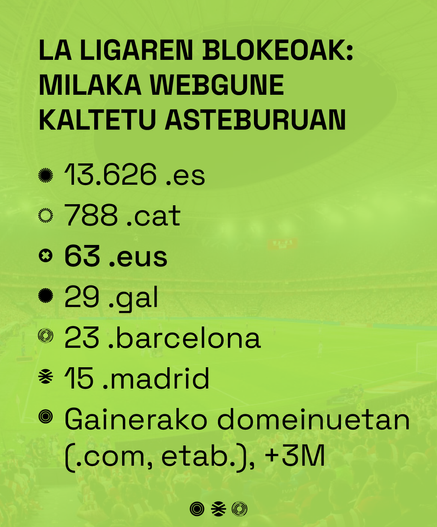

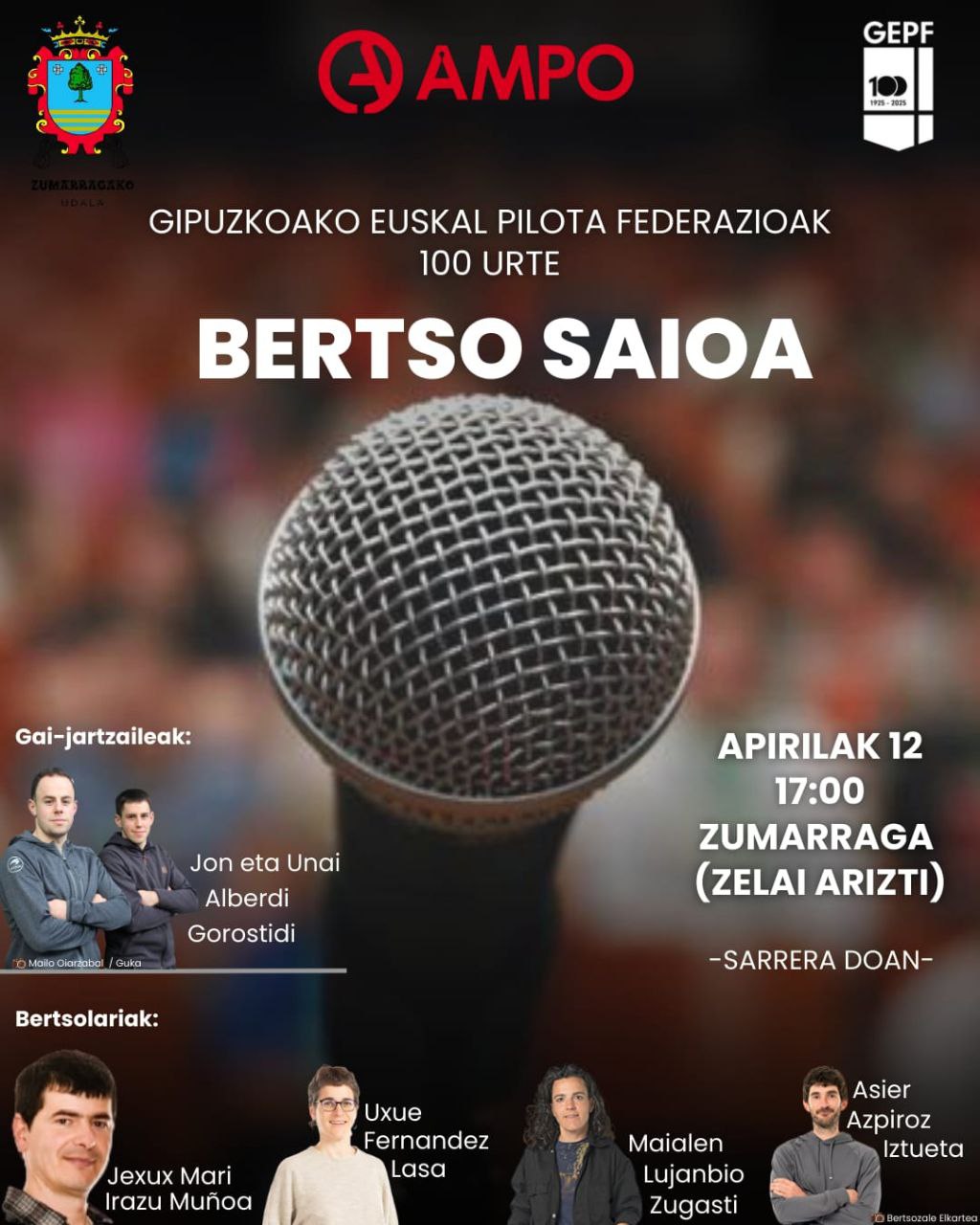

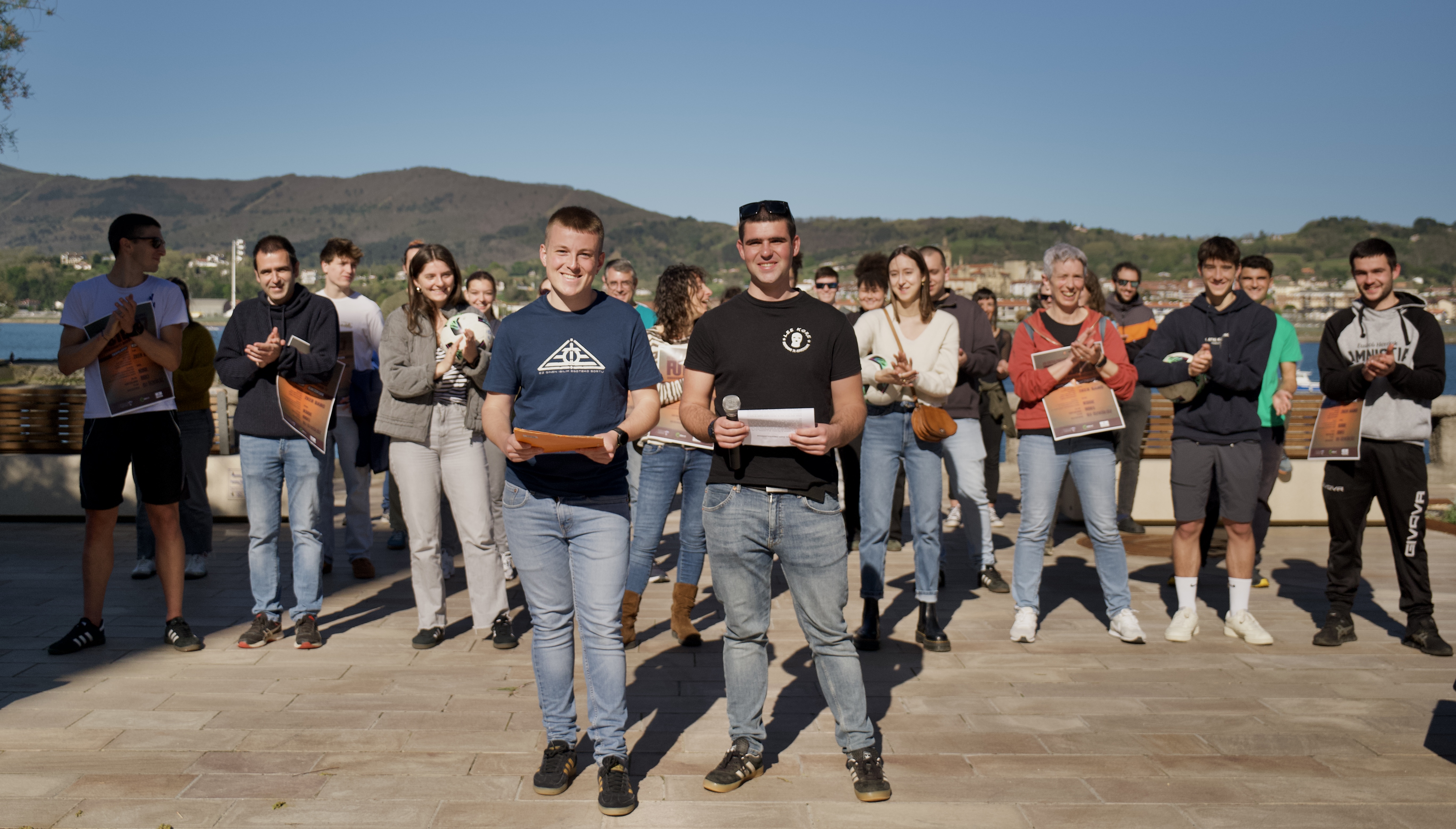

.jpg)

